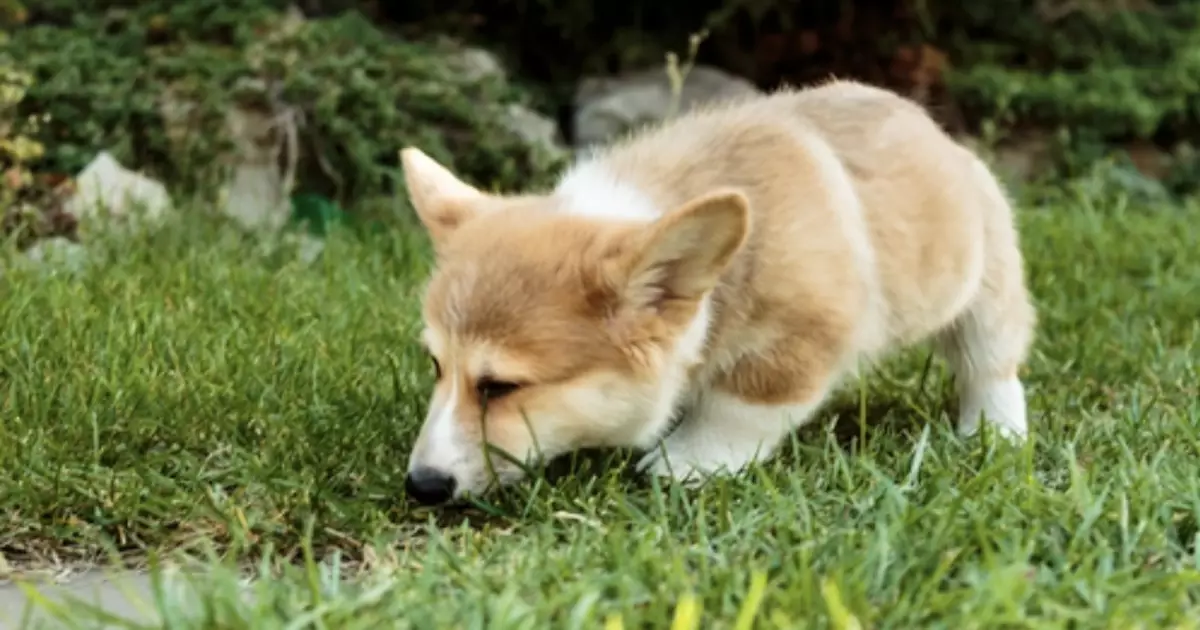Dogs exhibit a myriad of behaviors that often puzzle their owners, with one of the most perplexing being the tendency to munch on grass. This article delves into why dogs engage in this behavior, separating fact from misconception and providing insights into the reasons behind grass consumption.
Instinctual Origins: A Throwback to Ancestral Behaviors
To comprehend why modern domesticated dogs eat grass, we must first look back at their wild ancestors. Canines, such as wolves and coyotes, consumed a diverse diet that included not only meat but also various plant materials. In their natural habitats, ingesting grass could occur incidentally while consuming prey or scavenging for food. This instinctual behavior persists in domesticated dogs today, suggesting that grass-eating may simply be a nod to their evolutionary history rather than a cause for concern.
The Digestive Perspective: Fiber and Relief
Grass consumption may offer dogs a source of beneficial fiber. Much like humans, dogs require a certain amount of fiber for optimal digestive health. If a dog’s diet lacks sufficient fiber, they may turn to grass as a natural remedy, trying to self-regulate their digestion. Additionally, for dogs that experience constipation or mild gastrointestinal discomfort, grass can act as a natural laxative. The fibrous texture often stimulates bowel movements, making it plausible that dogs eat grass to alleviate digestive issues.
One of the more alarming aspects of this behavior is the fact that many dog owners observe their pets vomiting shortly after they eat grass. This might lead to the initial conclusion that eating grass is harmful. However, it’s theorized that dogs may consume grass as a way to induce vomiting if they are unwell. The rough texture may irritate their stomach lining, prompting the expulsion of indigestible materials or anything causing distress. Thus, grass-eating could be seen as a self-induced mechanism by which dogs attempt to feel better.
Just like humans, dogs can experience feelings of anxiety or boredom, which can manifest in peculiar behaviors, including eating grass. When dogs face long periods of solitude or lack adequate exercise and mental stimulation, they may resort to nibbling on grass as a coping strategy. Active dogs, in particular, may require more engagement to stave off boredom, indicating that providing a sufficient outlet for energy could mitigate this behavior.
Nutritional Deficiencies: Seeking Missing Elements
In some cases, dogs might gravitate toward grass due to nutritional deficiencies in their regular diet. If their meals lack essential vitamins, minerals, or enzymes, dogs might instinctively seek alternative sources to fill that gap, even if grass isn’t the most nutritious option. This tendency may be more pronounced in dogs consuming low-quality kibble or those with unbalanced homemade diets.
There exists a condition known as pica, which compels animals, including dogs, to consume non-food items. If a dog’s urge to eat grass becomes excessive or compulsive, it could signal an underlying issue, such as stress or a dietary imbalance. Consulting a veterinarian in such cases is advisable to ensure there aren’t deeper medical or behavioral concerns at play.
For many dogs, eating grass can also be a matter of sensory exploration. Dogs tend to engage with their surroundings through their mouths, and the distinct texture and coolness of fresh grass can provide an appealing sensory experience. For them, this behavior may not necessarily indicate any health problems, but rather may simply be a delightful part of their world exploration.
Imitating Fellow Creatures: Social Learning in Action
Dogs are inherently social creatures and are often influenced by the behavior of others in their environment. In multi-pet households or areas with grazing animals, a dog may start eating grass out of curiosity or as a learning experience. This mimicry is typically harmless and tends to be a phase for many dogs.
Chlorophyll, the pigment responsible for the green color in plants, is thought to hold health benefits, such as aiding digestion and serving as a natural deodorizer. Some dogs may instinctively consume grass to take advantage of these benefits, especially when their diet lacks fresh greens. This behavior highlights yet another layer of complexity regarding why dogs might choose to munch on grass.
Dogs eating grass is multifaceted, combining instinctual behaviors, digestive health, boredom management, and sensory exploration. For the majority of dogs, this behavior is harmless and often negligible. However, if concerns arise—such as persistent vomiting, lethargy, or changes in appetite—seeking veterinary advice remains prudent. Understanding the varied reasons behind this behavior can aid owners in ensuring their canine companions live healthy, satisfied lives.

